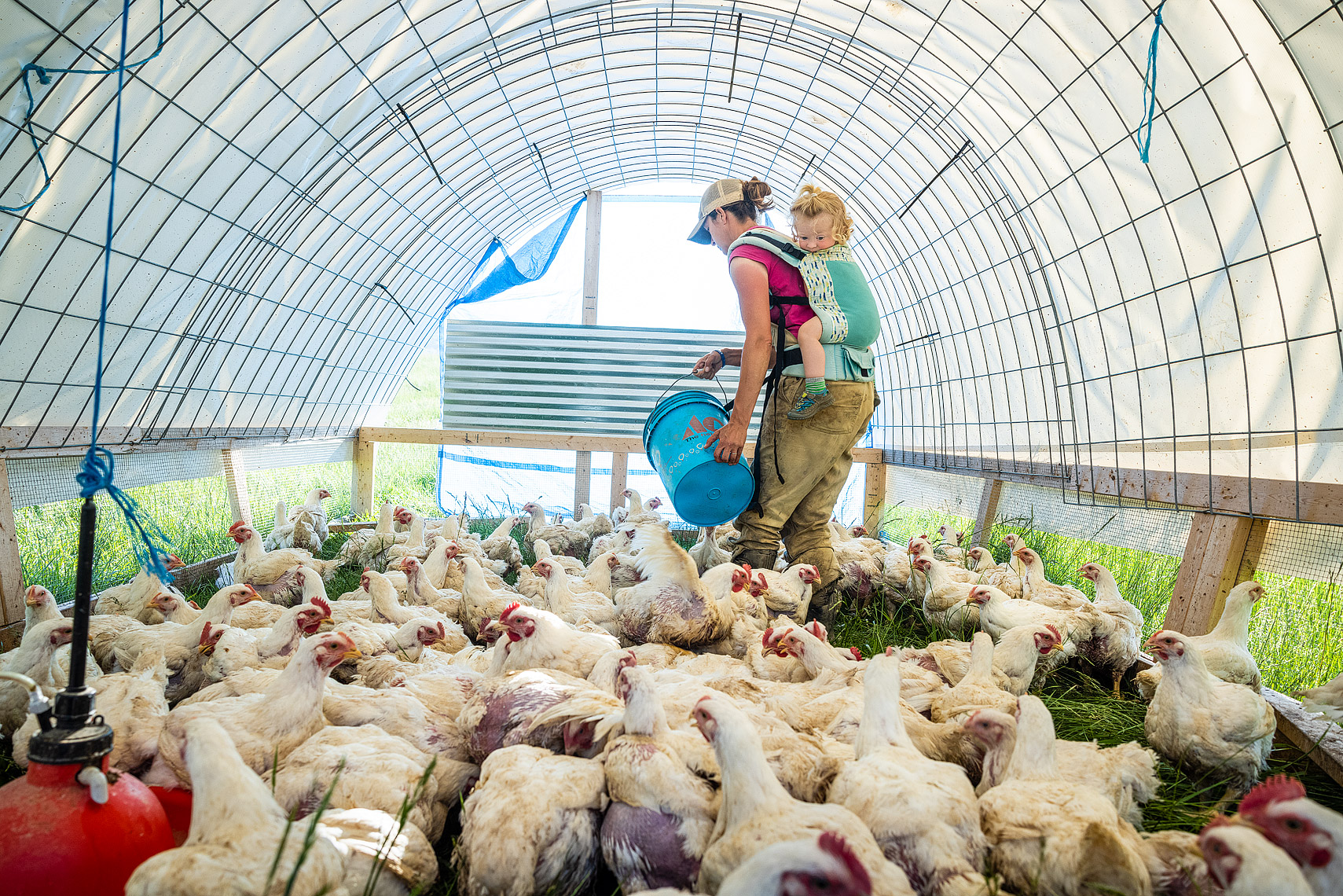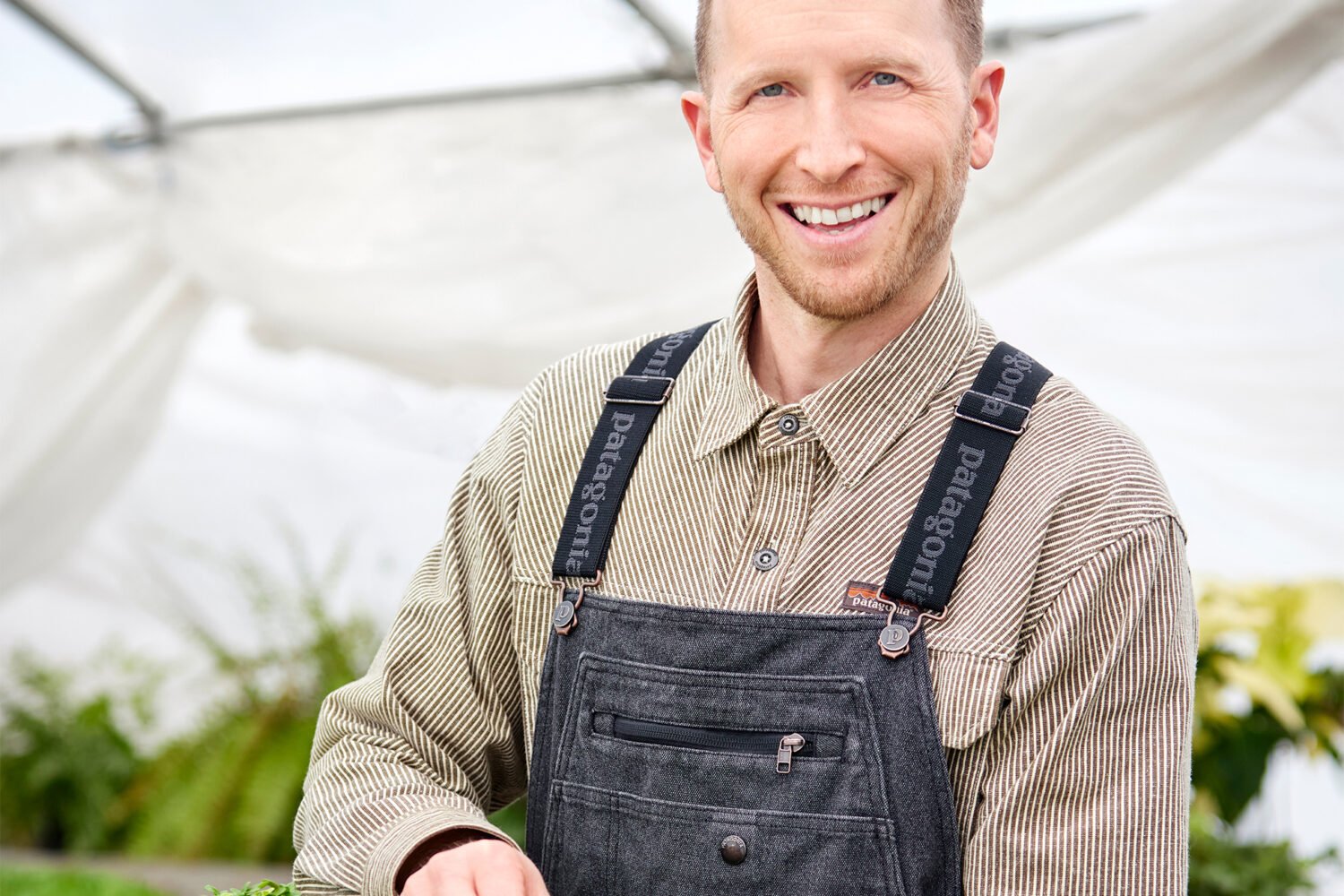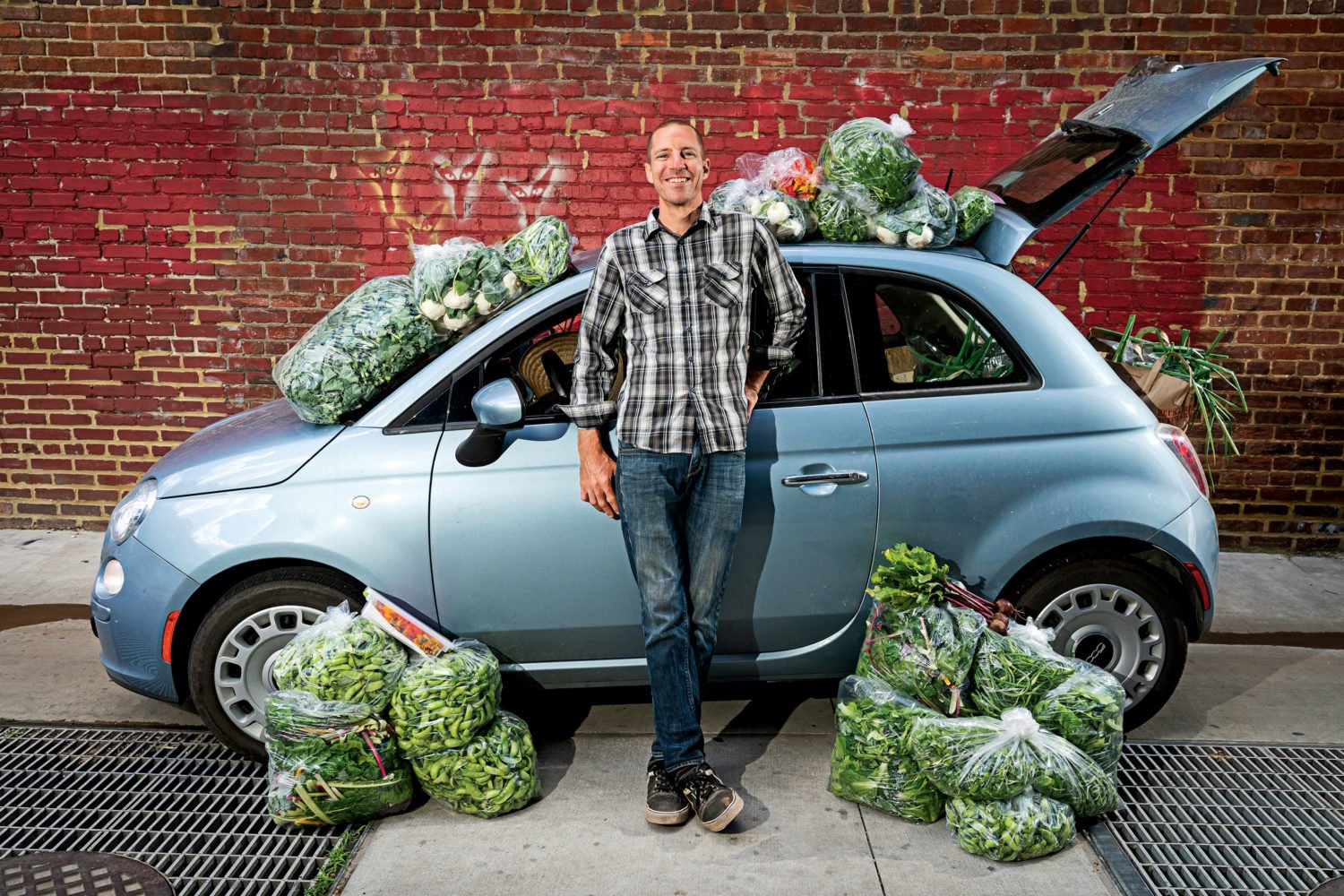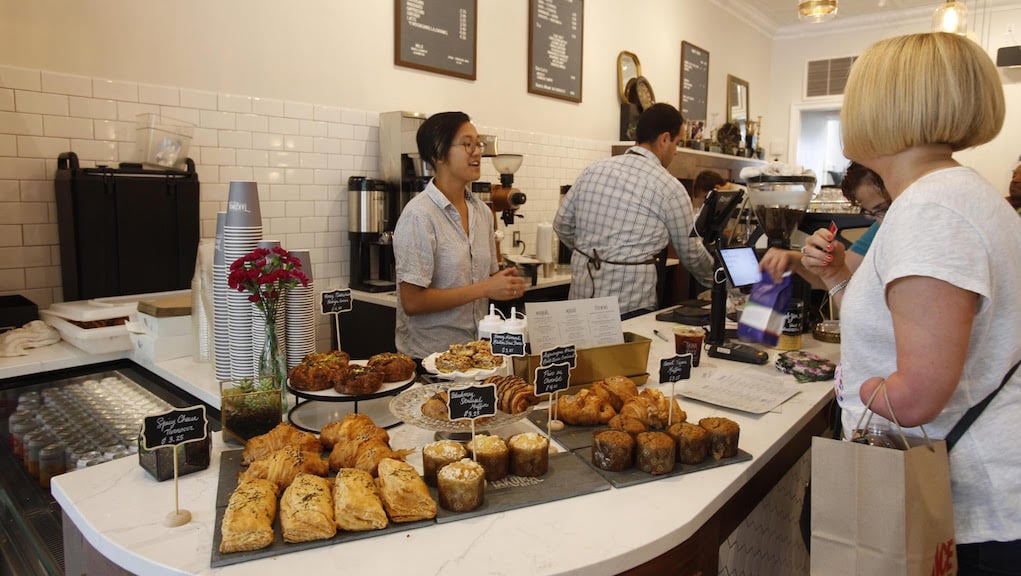Contents
It isn’t Old MacDonald’s farm anymore. The people behind your market tomatoes and steakhouse dinners are as diverse as the seeds they sow and the animals they raise. And though farming is an industry still dominated by men, women are a growing force shaping the way you eat. The USDA’s most recent Census of Agriculture, in 2017, found that women made up 36 percent of the country’s 3.4 million producers—an all-time high—and more than half of all farms had at least one female producer. Other takeaways: These women tend to be slightly younger and more likely beginning farmers. In other words, the future of farming is female. “Historically the idea has been that the man’s farming and the woman’s canning, right? Which is embarrassing. But I do see that changing,” says Deb Dramby, a goat farmer and communications manager for the local sustainable-farming organization Future Harvest. ”There is a real movement there, and it’s empowering.”
Long Stone Farm | Casey Wisch
Lovettsville, Virginia
Est. 2012
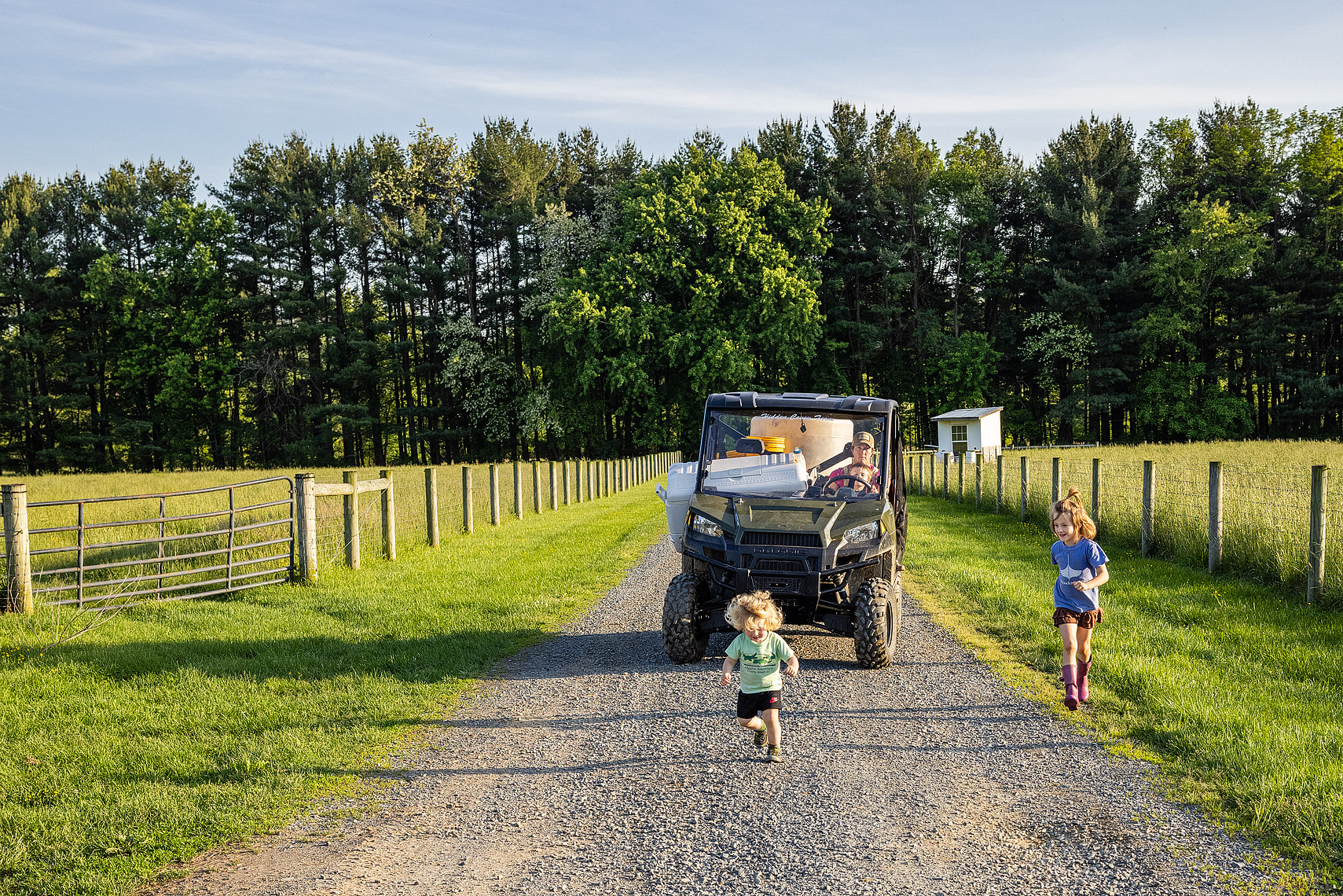
 In addition to chickens, cows, and hogs, Casey Wisch and her husband, Justin, are raising three children under age five on their Loudoun County farm. The kids tag along with Wisch on her daily chores, from collecting eggs to stocking the farm store. “There’s a lot of dangerous stuff out here,” she says, “so you really have to be careful with, you know, the grainbin ladders, for example. The flip side of that is it’s so fun watching them interact with the animals at such a young age. They know things intimately with how to handle chickens or how to approach cattle, or they’re so comfortable around a group of, like, 30 large hogs.”
In addition to chickens, cows, and hogs, Casey Wisch and her husband, Justin, are raising three children under age five on their Loudoun County farm. The kids tag along with Wisch on her daily chores, from collecting eggs to stocking the farm store. “There’s a lot of dangerous stuff out here,” she says, “so you really have to be careful with, you know, the grainbin ladders, for example. The flip side of that is it’s so fun watching them interact with the animals at such a young age. They know things intimately with how to handle chickens or how to approach cattle, or they’re so comfortable around a group of, like, 30 large hogs.”
Back to Top
Dodo Farms | Tope Fajingbesi
Brookeville, Maryland
Est. 2018
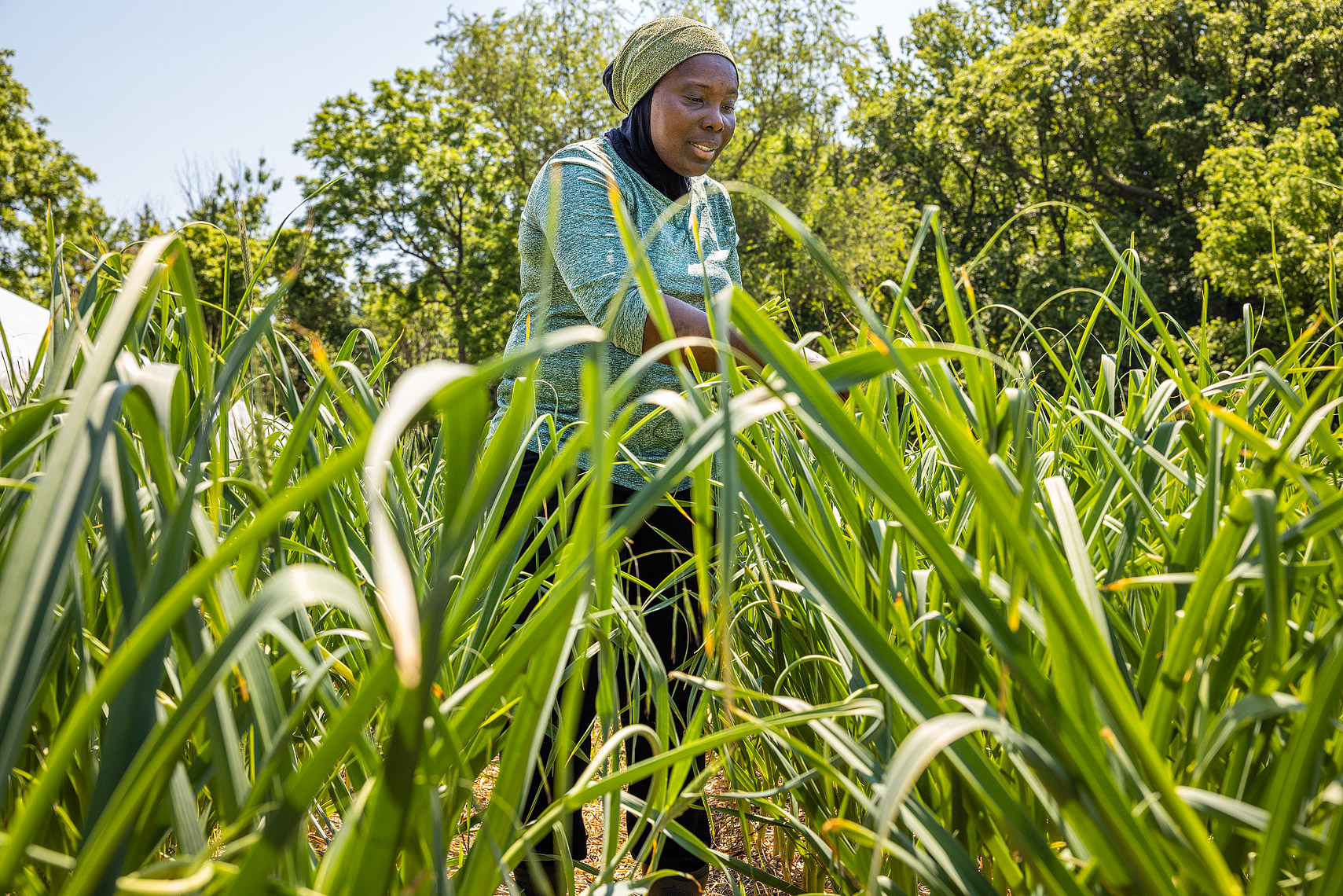
 Tope Fajingbesi was an accountant and financial consultant before she and her husband, Niyi Balogun—both immigrants from Nigeria—started farming in Montgomery County. Beyond the typical Mid-Atlantic crops, they introduce market-goers to lesser-known produce such as African spinach and spigarello (heirloom broccoli leaves) while supplying local food banks. Fajingbesi also teaches agricultural-business courses at the University of Maryland.
Tope Fajingbesi was an accountant and financial consultant before she and her husband, Niyi Balogun—both immigrants from Nigeria—started farming in Montgomery County. Beyond the typical Mid-Atlantic crops, they introduce market-goers to lesser-known produce such as African spinach and spigarello (heirloom broccoli leaves) while supplying local food banks. Fajingbesi also teaches agricultural-business courses at the University of Maryland.
Farming as a Black woman in America comes with the loaded legacy of slavery. But Fajingbesi has come to see it as a source of pride: “To farm as a free person who gets to keep my profits, who gets to decide what to farm, who gets to introduce the seeds that my ancestors had to hide in their hair . . . I am the answered prayers of those ancestors. I am the person who they cried and hoped would exist.”
Back to Top
Waterpenny Farm | Rachel Bynum
Sperryville, Virginia
Est. 2000
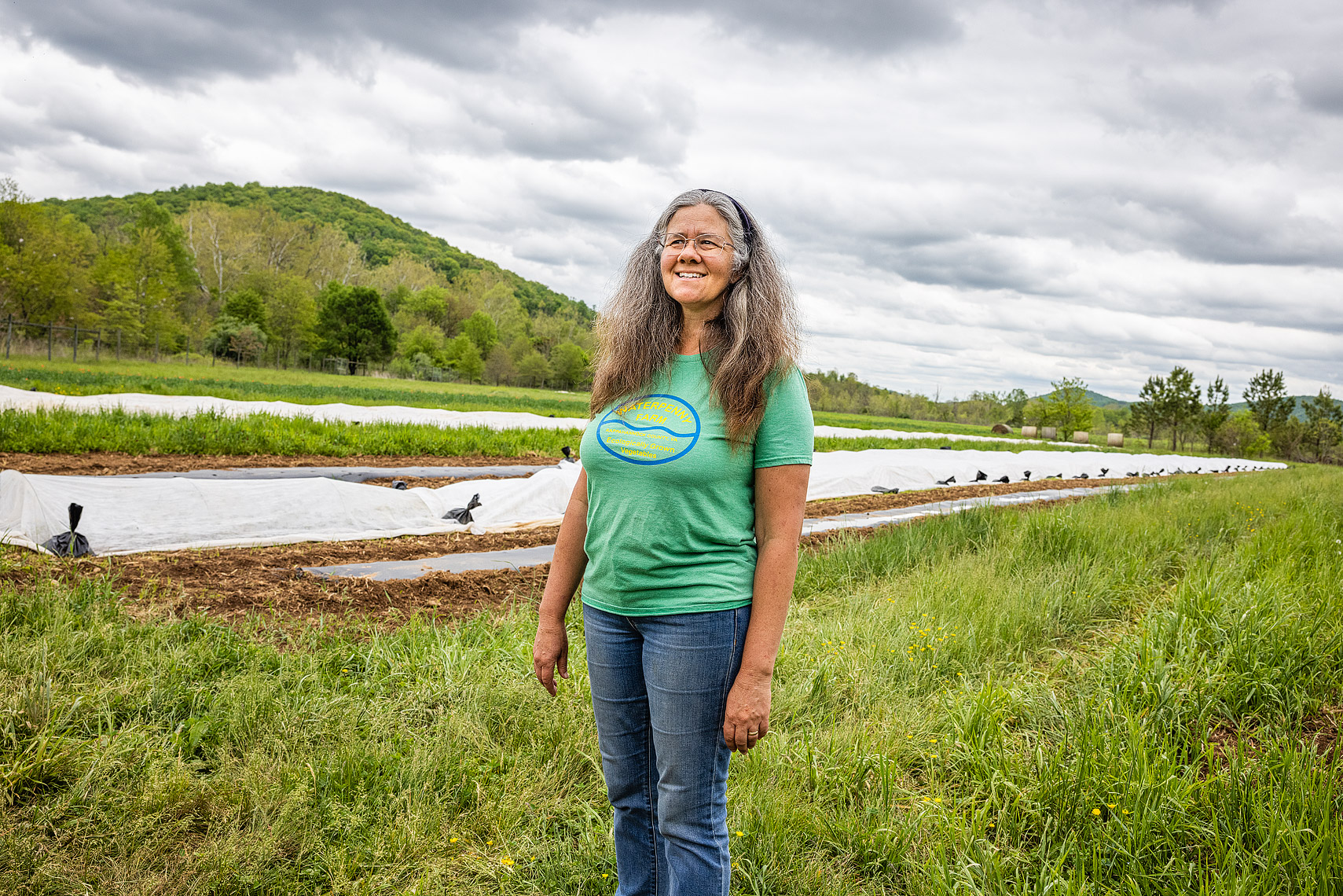

Fixtures of the Takoma Park and Arlington farmers markets, Rachel Bynum and her husband, Eric Plaksin, grow everything from kale to cantaloupe to more than 20 varieties of tomatoes on their eight-acre vegetable farm. Bynum is particularly fond of their fresh herbs and flowers, which she has planted over the years with the help of her two now-teenage sons. “I think there can be hard choices that professional women make in terms of balance of family and business,” she says. “It’s nice to have a business where our kids can be out there and somewhat part of it.”
Back to Top
Potomac Vegetable Farms | Hiu And Hana Newcomb
Vienna And Purcellville, Virginia
Est. 1962
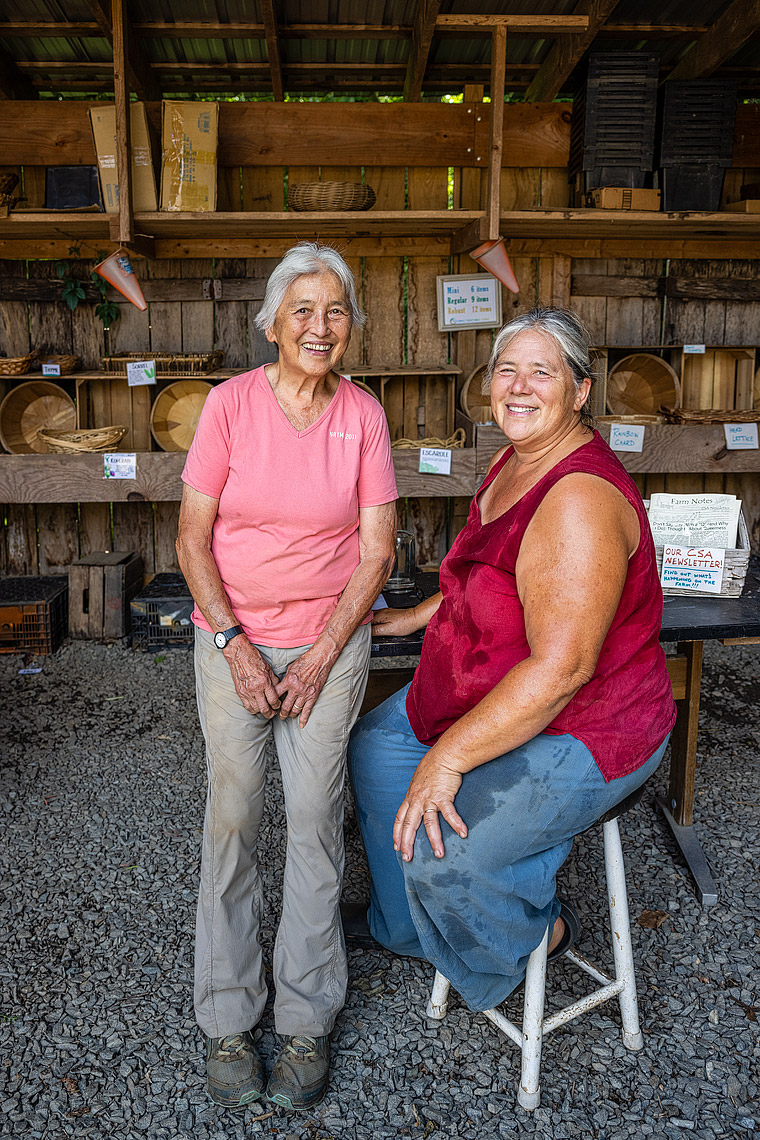

Tucked amid the McMansions near Tysons, Potomac Vegetable Farms has been a hub for tomatoes and community vibes over the past 60 years. The place was founded by Hiu Newcomb and her late husband, Tony, a former federal government economist and “utopianist,” and is now overseen by their daughter Hana, who raised her own three kids there.
“It took me till I was about 35 years old to realize this is a great thing that I’m doing, and I should be proud instead of feeling embarrassed that I didn’t think of what else to do,” says Hana, 62. “The reason I’m here is because I get to be who I am . . . the person who makes things happen.”
Back to Top
56 Hooves | Deb Dramby
Bluemont, Virginia
Est. 2017
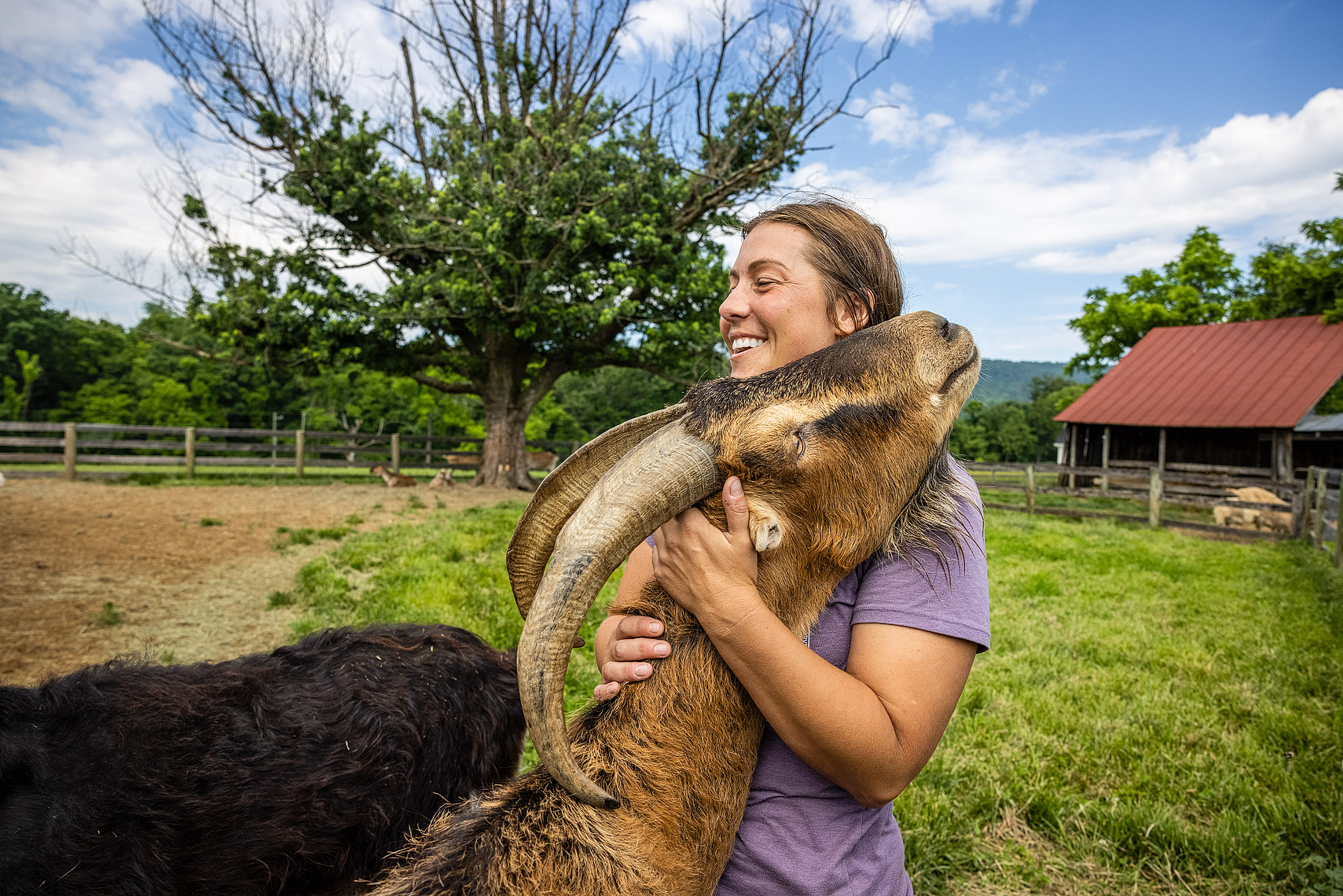

Deb Dramby jokes that her spirit animal is a high-strung racehorse: “They travel with companion goats that calm them down.” She raises a small herd of goats—Bruce, Sparky, Mr. Burns, to name a few—which she rents out to graze land as a sustainable form of vegetation control. She also welcomes military-veteran families to spend some therapeutic time with the animals and brings them to kids’ summer camps. The farm is actually a side hustle—her day job is communications manager for Future Harvest, a nonprofit supporting sustainable agriculture in the Chesapeake region. Says Dramby: “I kind of joke, for me, 40 hours a week is a part-time job.”
Back to Top
Hidden Creek Farm | Andrea Young
Delaplane, Virginia
Est. 2015
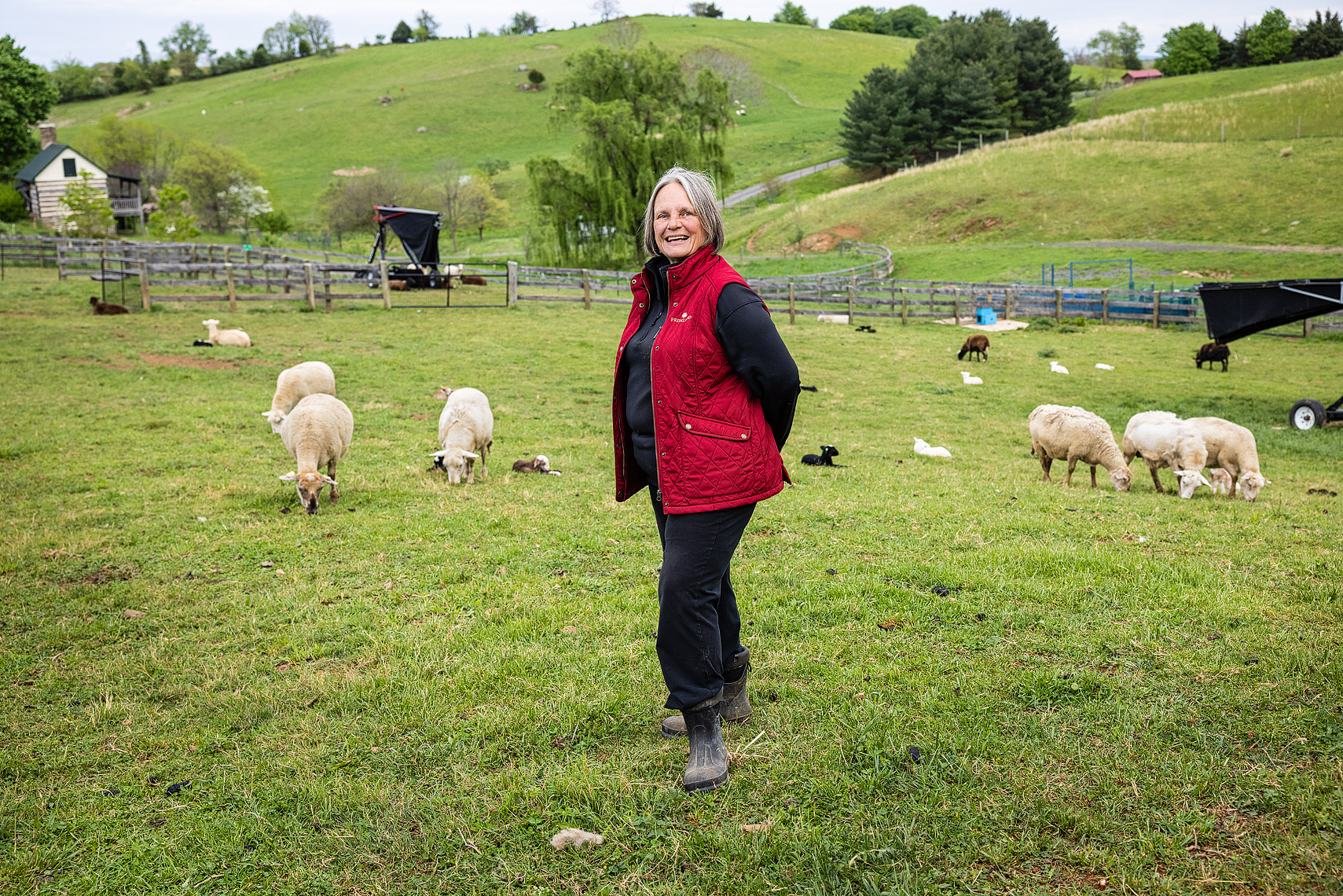

Andrea Young, who worked in conflict resolution and leadership coaching, says she and her husband, Dendy, a tech entrepreneur, aren’t the “retiring types.” So in 2015, they bought an abandoned plot of land and began to grow certified organic produce; raise heritage cattle, pigs, and sheep; and run Airbnbs. She confesses that they “knew nothing” about farming beforehand, but they’ve since worked to build a legacy improving the way people eat, by turning Hidden Creek into a model for regenerative farming practices. “I never felt so connected and useful and purposeful and mentally stimulated as here,” Young says. “It’s constant action.”
Back to Top
Passion to Seed Gardening | Tanya Doka-Spandhla
Gaithersburg, Maryland
Est. 2015
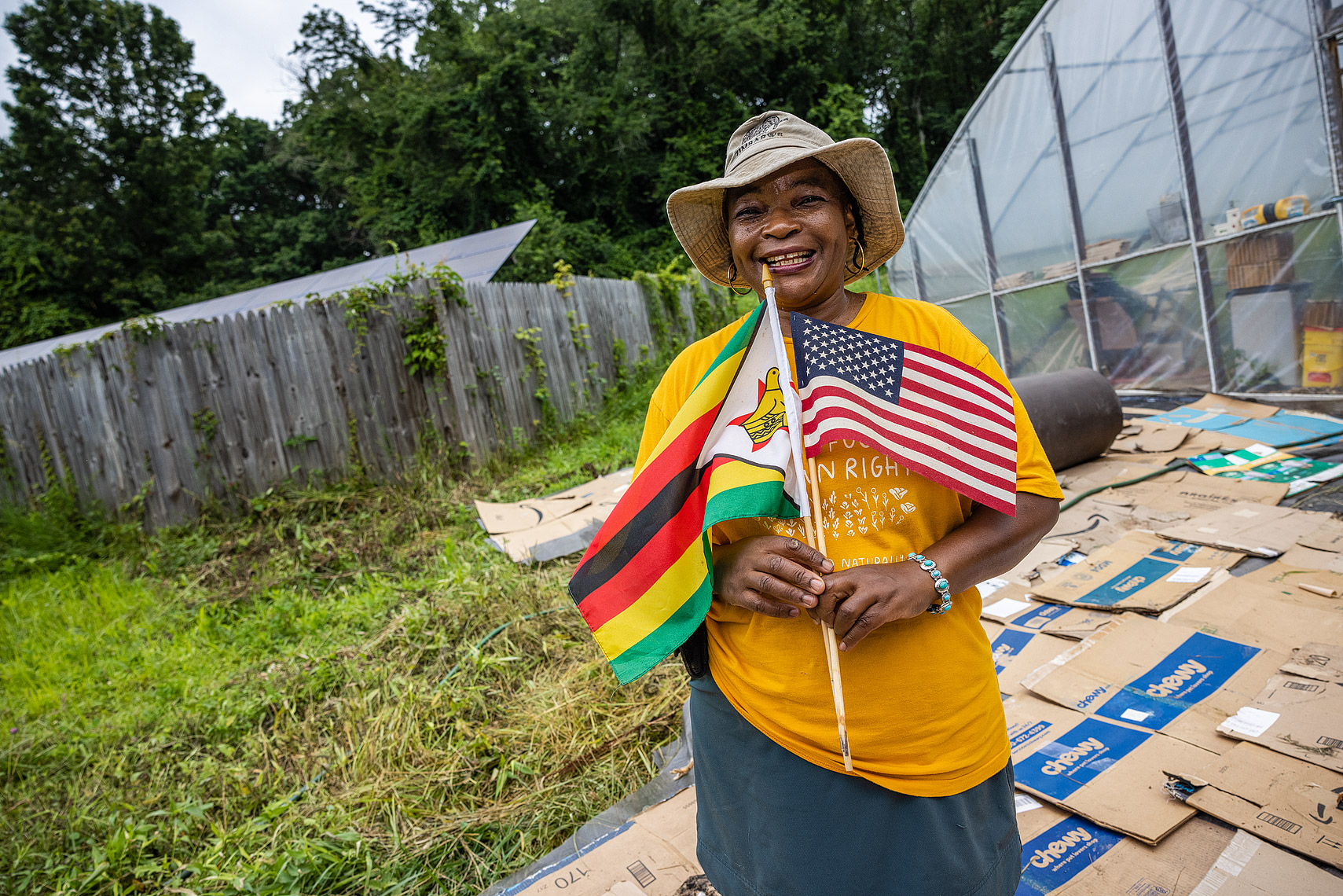

Tanya Doka-Spandhla grew up gardening as a child in Zimbabwe. But after her husband suffered a stroke in 2009, it became a productive distraction that she found had big health benefits for her family. Doka-Spandhla still works in IT for a defense contractor, but in 2015 she launched a business growing Zimbabwean corn, horned melons, spider-flower leaves, and other produce from her native home. The one-woman operation has built a devoted clientele of African immigrants and expats mainly via word of mouth: “Some of them, they start calling in January asking if the corn is ready, and I haven’t even started tilling the land.”
Back to Top
804 Cattle Company | Roxann Brooks Motroni
Upper Marlboro, Maryland
Est. 2016
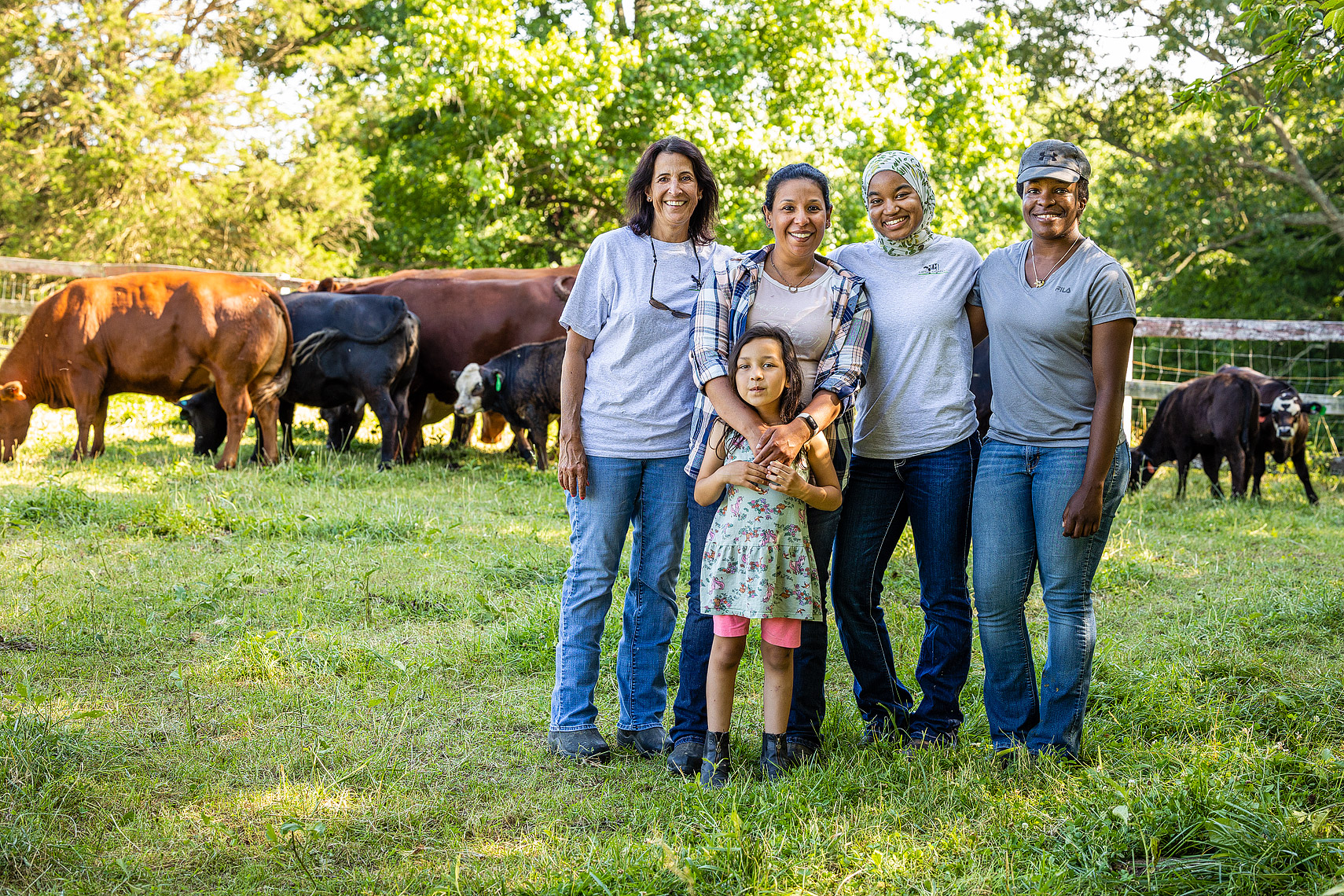

Roxann Brooks Motroni is a large-animal vet who works for the USDA. So when her parents, both physicians, retired and bought a large plot of land next door to her home, she suggested they run cattle together. “I think everybody was just kind of like, ‘Sure, why not? We need to do something with this land, right?’ ” says Motroni, 37. Today it’s a multigenerational operation also involving Motroni’s husband, daughter, two older brothers and their families, plus volunteer farm vets in training. “You know how much goes into getting a pound of ground beef on your plate,” she says. “You don’t take it for granted when you’ve been out there in freezing temperatures, getting hay and breaking up ice so that cows can drink.”
A special thanks to the American Farmland Trust who helped connect the photographer with these women farmers and their stories.
Farm icons by Michelle Shin.
This article appears in the September 2022 issue of Washingtonian.
